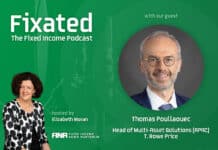
By R.J Gallo, senior portfolio manager at Federated Hermes
The direction of US Treasury yields in the new year hinges heavily on the uncertain economic impact of the incoming Trump administration’s policies.
Tariffs. Economics textbooks tell us tariffs drive up prices and decrease volumes of imported goods, prompting less trade and upward pressure on inflation. That said, the incoming administration intends to use tariffs as a threat to push new trade negotiations, motivate US companies to onshore production, and urge trading partners to stem the flow of illegal immigrants and drugs. Thus, the extent of the economic impact from tariffs depends heavily on the reactions of the targeted parties.
Deficit. Conventional budget scoring suggests the potential increase from extending the Trump tax cuts and eliminating taxes on social security and tips will likely outweigh the savings from any Department of Government Efficiency measures, new tariff proceeds or tax revenues arising from higher short-term growth. With the US government already posting nearly a $2 trillion federal deficit, and marketable Treasury debt-to-GDP nearing 100%—the highest since the aftermath of World War II—a much wider deficit could awaken the bond vigilantes.
Also read: Central Banks Generating Volatility plus 5 Disruptors
Federal Reserve. In his first term, Trump bashed Fed Chair Jerome Powell. Imagine how he might act now that the Fed signalled it may only ease 50 basis points in 2025, becoming less accommodative just as Trump re-enters the White House. Trump may simply stick to criticism until he nominates a replacement Fed chair in early 2026 as Powell’s term ends. Alternatively, he may undermine Powell by establishing a “shadow chair” of the Federal Open Market Committee within the Treasury Department to suggest desired monetary policy or by attempting to remove Powell altogether. Such bold attacks would enflame fears about the Fed’s operational independence. Will the new administration achieve all of these policy aspirations in just the right mix such that inflation moderates, the deficit stabilizes and market confidence in central bank independence persists? Perhaps. Yet, bond traders tend to be sceptically minded, demanding higher yield premiums as compensation while they wait and see how risks evolve.
































